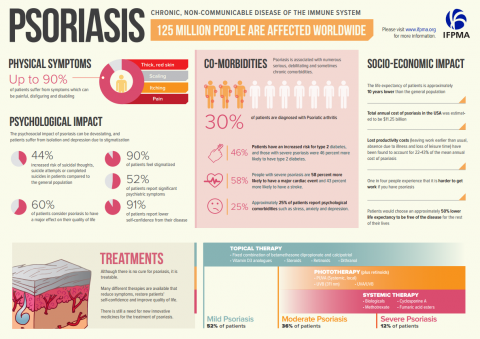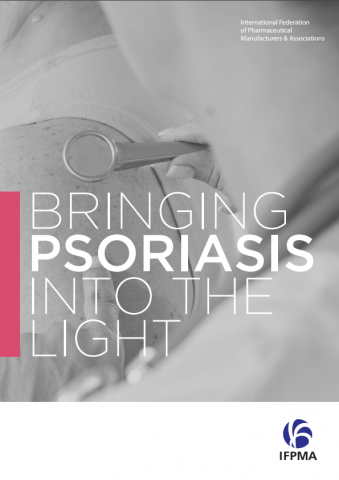IFPMA Statement, EB 133, Item 6.2, Psoriasis
Delivered by Mr Mario Ottiglio, Director, Public Affairs and Global Health Policy
Thank you on behalf of the International Federation of Pharmaceutical Manufacturers and Associations (IFPMA) for the opportunity to provide our perspective on psoriasis. IFPMA represents the global R&D pharmaceutical industry, whose primary contribution to global health is the development of innovative medicines and vaccines.
125 million people in the world suffer from psoriasis. As a major chronic disease, it exerts deleterious psychological and physical effects on individuals. Around a quarter of psoriasis patients eventually go on to develop disability-causing psoriatic arthritis. Studies have gathered evidence on the disease co-morbidities with other NCDs such as cardiovascular disease and depression. Particularly, children with psoriasis may have a higher risk of developing psychiatric disorders compared to those who do not suffer from it.
Beyond the health sphere, psoriasis brings an economic burden on individuals and societies: for example, in the USA only work loss due to psoriasis accounts for 40 percent of the cost burden. Approximately 60 percent of psoriasis patients missed an average of 26 days of work a year due to their illness.
IFPMA commends the WHO’s report on psoriasis as an important contribution to help fight this disease.
We support the report’s conclusion on the need to raise awareness of the disease. As such, we believe every effort should be made to support a significant increase in global concerted initiatives to help achieve this goal, including a specific awareness day.
The very visible nature of psoriasis translates into social stigmatization and rejection as daily experiences for people suffering from it. Global awareness initiatives should represent a means to reducing stigma and discrimination.
We laud the report’s recognition of the role WHO can play in identifying successful approaches for integrating management of psoriasis into existing services for non-communicable diseases at all levels of care.
We look forward to galvanizing support, awareness, and action from different stakeholders to identify solutions that improve the health of psoriasis patients globally.









